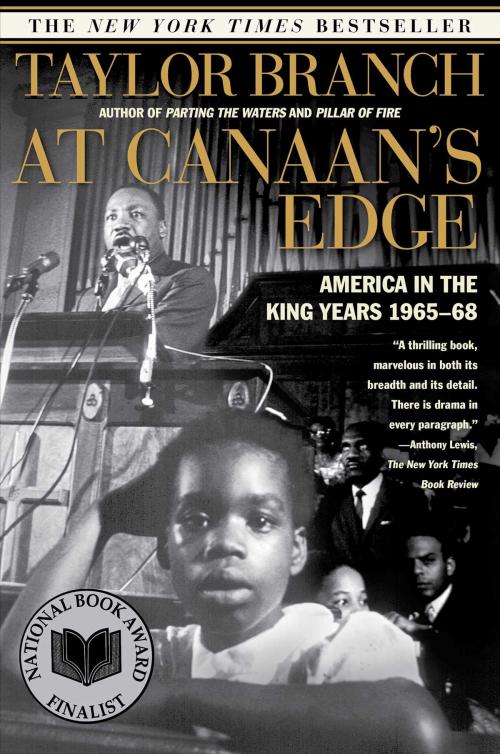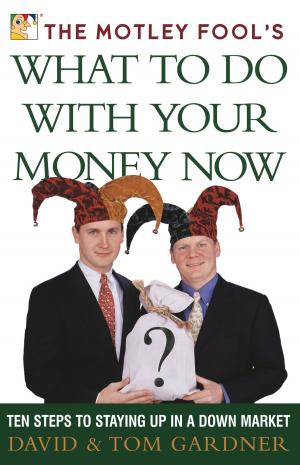At Canaan's Edge
America in the King Years, 1965-68
Nonfiction, Social & Cultural Studies, Political Science, Politics, Civil Rights, Biography & Memoir, Political, History| Author: | Taylor Branch | ISBN: | 9781416558712 |
| Publisher: | Simon & Schuster | Publication: | April 4, 2007 |
| Imprint: | Simon & Schuster | Language: | English |
| Author: | Taylor Branch |
| ISBN: | 9781416558712 |
| Publisher: | Simon & Schuster |
| Publication: | April 4, 2007 |
| Imprint: | Simon & Schuster |
| Language: | English |
At Canaan's Edge concludes America in the King Years, a three-volume history that will endure as a masterpiece of storytelling on American race, violence, and democracy. Pulitzer Prize-winner and bestselling author Taylor Branch makes clear in this magisterial account of the civil rights movement that Martin Luther King, Jr., earned a place next to James Madison and Abraham Lincoln in the pantheon of American history.
In At Canaan's Edge, King and his movement stand at the zenith of America's defining story, one decade into an epic struggle for the promises of democracy. Branch opens with the authorities' violent suppression of a voting-rights march in Alabama on March 7, 1965. The quest to cross Selma's Edmund Pettus Bridge engages the conscience of the world, strains the civil rights coalition, and embroils King in negotiations with all three branches of the U.S. government.
The marches from Selma coincide with the first landing of large U.S. combat units in South Vietnam. The escalation of the war severs the cooperation of King and President Lyndon Johnson after a collaboration that culminated in the landmark 1965 Voting Rights Act.
After Selma, young pilgrims led by Stokely Carmichael take the movement into adjacent Lowndes County, Alabama, where not a single member of the black majority has tried to vote in the twentieth century. Freedom workers are murdered, but sharecroppers learn to read, dare to vote, and build their own political party. Carmichael leaves in frustration to proclaim his famous black power doctrine, taking the local panther ballot symbol to become an icon of armed rebellion.
Also after Selma, King takes nonviolence into Northern urban ghettoes. Integrated marches through Chicago expose hatreds and fears no less virulent than the Mississippi Klan's, but King's 1966 settlement with Mayor Richard Daley does not gain the kind of national response that generated victories from Birmingham and Selma. We watch King overrule his advisers to bring all his eloquence into dissent from the Vietnam War. We watch King make an embattled decision to concentrate his next campaign on a positive compact to address poverty. We reach Memphis, the garbage workers' strike, and King's assassination.
Parting the Waters provided an unsurpassed portrait of King's rise to greatness, beginning with the 1955 Montgomery bus boycott and ending with the assassination of President John F. Kennedy in 1963. In Pillar of Fire, theologians and college students braved the dangerous Mississippi Freedom Summer of 1964 as Malcolm X raised a militant new voice for racial separatism. The Civil Rights Act of 1964 outlawed segregation by race and mandated equal opportunity for women. From the pinnacle of winning the Nobel Peace Prize, King willed himself back to "the valley" of jail in his daunting Selma campaign.
At Canaan's Edge portrays King at the height of his moral power even as his worldly power is waning. It shows why his fidelity to freedom and nonviolence makes him a defining figure long beyond his brilliant life and violent end.
At Canaan's Edge concludes America in the King Years, a three-volume history that will endure as a masterpiece of storytelling on American race, violence, and democracy. Pulitzer Prize-winner and bestselling author Taylor Branch makes clear in this magisterial account of the civil rights movement that Martin Luther King, Jr., earned a place next to James Madison and Abraham Lincoln in the pantheon of American history.
In At Canaan's Edge, King and his movement stand at the zenith of America's defining story, one decade into an epic struggle for the promises of democracy. Branch opens with the authorities' violent suppression of a voting-rights march in Alabama on March 7, 1965. The quest to cross Selma's Edmund Pettus Bridge engages the conscience of the world, strains the civil rights coalition, and embroils King in negotiations with all three branches of the U.S. government.
The marches from Selma coincide with the first landing of large U.S. combat units in South Vietnam. The escalation of the war severs the cooperation of King and President Lyndon Johnson after a collaboration that culminated in the landmark 1965 Voting Rights Act.
After Selma, young pilgrims led by Stokely Carmichael take the movement into adjacent Lowndes County, Alabama, where not a single member of the black majority has tried to vote in the twentieth century. Freedom workers are murdered, but sharecroppers learn to read, dare to vote, and build their own political party. Carmichael leaves in frustration to proclaim his famous black power doctrine, taking the local panther ballot symbol to become an icon of armed rebellion.
Also after Selma, King takes nonviolence into Northern urban ghettoes. Integrated marches through Chicago expose hatreds and fears no less virulent than the Mississippi Klan's, but King's 1966 settlement with Mayor Richard Daley does not gain the kind of national response that generated victories from Birmingham and Selma. We watch King overrule his advisers to bring all his eloquence into dissent from the Vietnam War. We watch King make an embattled decision to concentrate his next campaign on a positive compact to address poverty. We reach Memphis, the garbage workers' strike, and King's assassination.
Parting the Waters provided an unsurpassed portrait of King's rise to greatness, beginning with the 1955 Montgomery bus boycott and ending with the assassination of President John F. Kennedy in 1963. In Pillar of Fire, theologians and college students braved the dangerous Mississippi Freedom Summer of 1964 as Malcolm X raised a militant new voice for racial separatism. The Civil Rights Act of 1964 outlawed segregation by race and mandated equal opportunity for women. From the pinnacle of winning the Nobel Peace Prize, King willed himself back to "the valley" of jail in his daunting Selma campaign.
At Canaan's Edge portrays King at the height of his moral power even as his worldly power is waning. It shows why his fidelity to freedom and nonviolence makes him a defining figure long beyond his brilliant life and violent end.















